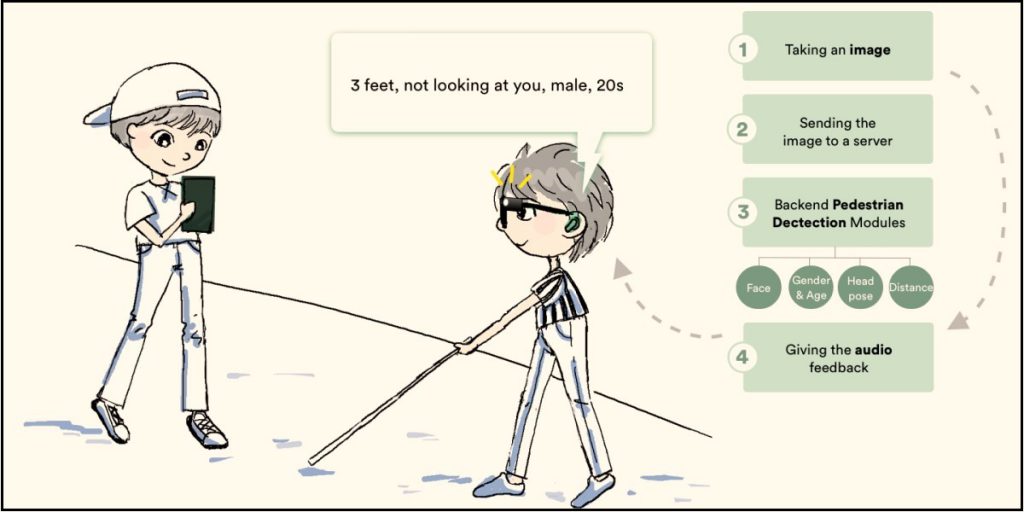A research team from the UMD HCIL lab examine the social acceptance of wearable cameras.

In the Medium article, “What If Blind People Wear a Camera That Can Detect You in Public Spaces?” by Kyungjun Lee, Lee discuss the ethics behind assistive wearable cameras for blind people. While wearable cameras can provide blind people with the ability to detect pedestrians, this technology also raises privacy concerns.
A research team from the University of Maryland (UMD) Human-Computer Interaction Lab (HCIL) conducted an online survey and an in-person experiment to determine the social acceptance of wearable cameras. The HCIL is a multidisciplinary research lab bringing together researchers from the UMD iSchool, Computer Science, UMIACs, and more.
Lee, a UMD PhD student in Computer Science and researcher at the HCIL, shares that, “Overall, sighted participants show positive attitudes toward wearable cameras for pedestrian detection that benefit blind people. This only extends to technology where the camera is visible and the extracted information is agreeable.”